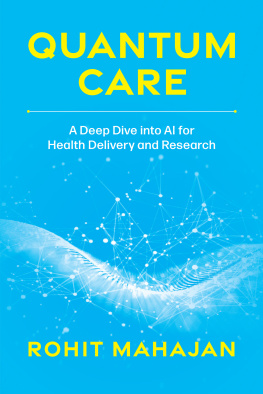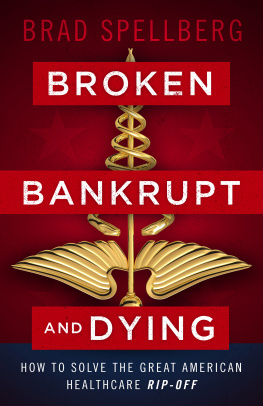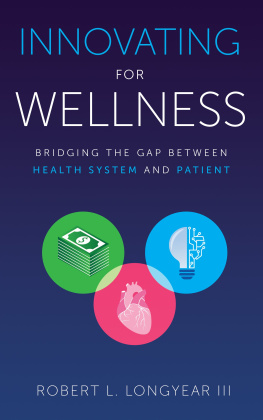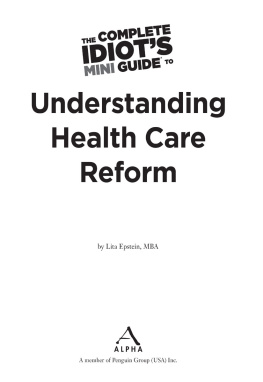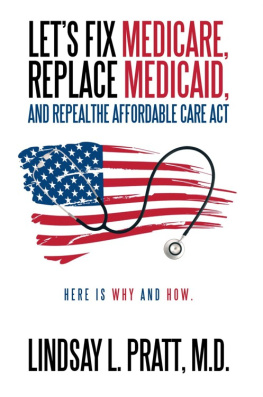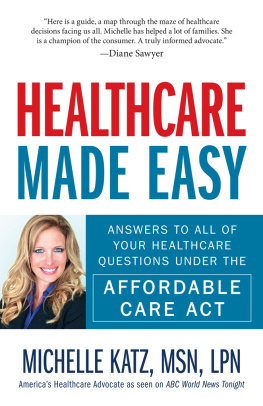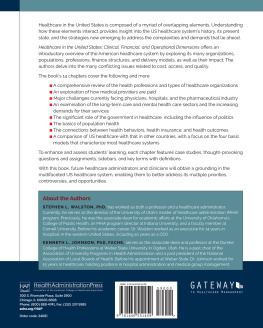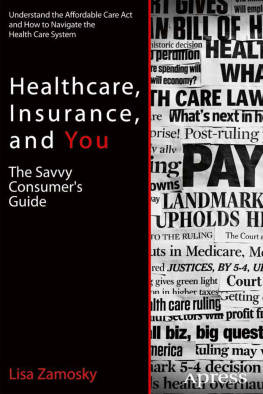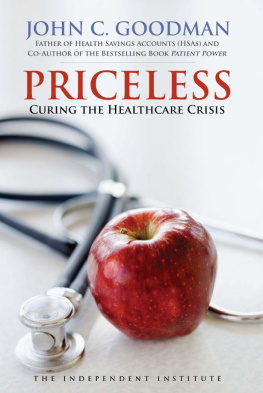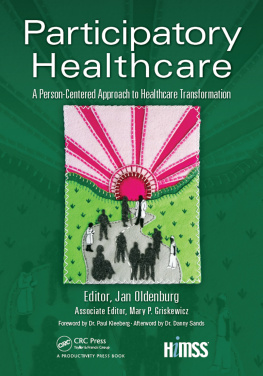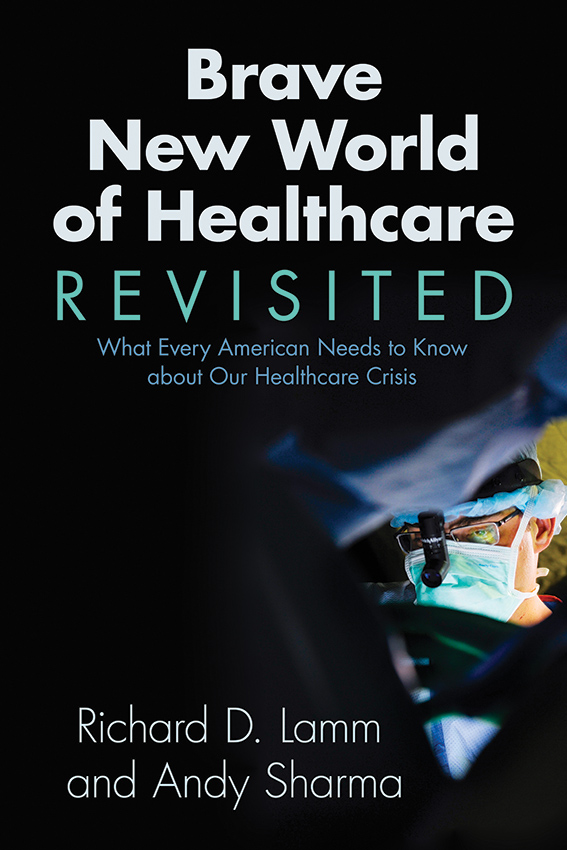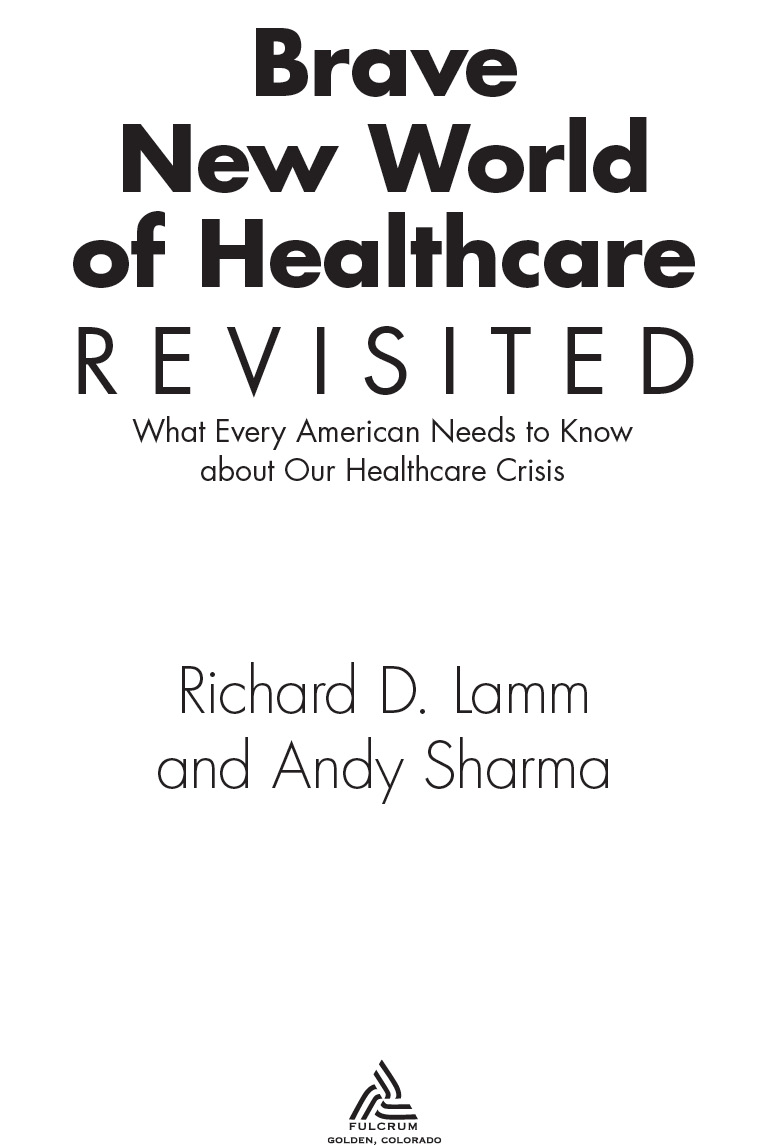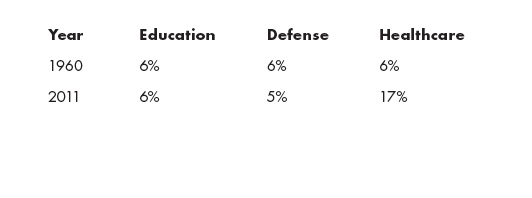Praise for The Brave New World of Healthcare
Resilience and fortitude are required to preach hard choices to a profligate nation. But Governor Richard Lamm has been the dean of the school of hard choices for at least two decades. Here he holds a stark mirror up to an American society willing to steal from its children and bankrupt the next generation. In scalding language fueled by scorn for an age where accountability and responsibility are sacrificed to greed and comfort, Governor Lamm uses the health care finance debacle as a metaphor for a nation unwilling to pay its own way. Though he risks being marginalized and dismissed as some early twenty-first-century prophet Jeremiah crying shame on an irresponsible society, he will surely be honored by our children for his courage and his integrity on their behalf.
Gary Hart Former United States Senator
Sooner or laterand let us hope soonerwe Americans are going to have to ask some tough questions about a health care system that cant insure our working families and health costs that are rising at six times the rate of inflation.Dick Lamm asks those tough questionsand comes up with some answers. You may or may not agree with them, but unless our political leaders confront them as he has, well never be able to guarantee all Americans decent health care at a reasonable cost.
Michael Dukakis Former Governor of Massachusetts and Democratic Presidential Candidate
Richard Lamm has never been a throw money at it politician, and yet he never hesitates to tackle injustices with his keen mind and wisdom. What greater injustice for Americans can there be than having 44 million of our fellow citizens having no health insurance? This book should be mandatory reading for every citizen. There is no one better than Lamm to challenge our thinking about how to rectify this wrong.
Patricia Schroeder President and CEO of the Association of American Publishers and Former Congresswoman
2013 by Richard D. Lamm and Andy Sharma
All rights reserved. No part of this book may be reproduced or transmitted in any form or by any means, electronic or mechanical, including photocopying, recording, or by an information storage and retrieval systemexcept by a reviewer who may quote brief passages in a reviewwithout permission in writing from the publisher.
Library of Congress Cataloging-in-Publication Data
2012034569
Printed in the United States of America
0 9 8 7 6 5 4 3 2 1
Design by Jack Lenzo
Fulcrum Publishing
4690 Table Mountain Dr., Ste. 100
Golden, CO 80403
800-992-2908 303-277-1623
www.fulcrumbooks.com
Acknowledgments
No trees grow to the sky, and no element of the US national budget can grow at more than twice the rate of inflation. Yet that is the rate of growth of healthcare during my professional lifetime. A series of healthcare decisions lie in our immediate future that will make our moral compasses gyrate, yet we have not even begun talking about them. Their difficulty will be compounded as we retire the baby boomers and find that Social Security financing and long-term care needs are competing for these same dollars.
This is not just another issue. I believe this is a nation-threatening issue. The numbers required to finance the future are gargantuan and began to come due when the first wave of baby boomers start to retire in 2011. They threaten to undercut the economy, crowd out other important public needs, and increase generational tensions. Instead of moving to meet this challenge, our nation gives tax cuts insteadwith borrowed money! This raises what is to me a fascinating issue: are our institutions as we have developed them equal to the magnitude of our problems? Can our democracy make hard choices?
For most of American history, politicians were able to give voters more and more. We have a rich continent, populated by a creative and hardworking people. We have overcome a number of obstacles. But we have also become an overindulged people who seem to have lost the ability to tighten our belts and make sacrifices for our children and our future.
Healthcare presents not only challenging funding problems but also fascinating ethical and policy issues. Simply put, we have invented more healthcare than we can afford to deliver to everyone. This book represents my odyssey into healthcare ever since the midseventies, when I realized how much it was driving my budget.
I have been greatly enriched in my thinking about healthcare by Victor Fuchs, Haavi Morreim, David Eddy, and Robert Blank, among others. I am in their debt for ways that I cannot fully acknowledge.
I would like to acknowledge my lovely wife, Dottie, who has accompanied me to countless hospitals and clinics around the globe, many in the third world, with only the occasional interesting dinner with a dedicated doctor for her reward.
Dick Lamm
I believe well-reasoned public policy requires good information. In other words, policy makers need to have a thorough and up-to-date understanding of key issues. My hope is that this book serves such a function for healthcare.
I would like to acknowledge my former professors at DePaul, Loyola, and the University of North Carolina at Chapel Hill. I have learned much from them and am pleased I could impart some of my knowledge to the readers of this book. I would also like to thank my father, my mother, who passed away from breast cancer in 2009, my older brother, my sister-in-law, and my niece and nephew for their support. Lastly, I want to thank Amanda E. Melvin for reading several versions of rough drafts.
Andy Sharma
Preface
My wife, Dottie, survived breast cancer. I am forever grateful to the skill and caring of an excellent group of doctors and a good hospital. There is no doubt in my mind that we owe her health and her life to the brilliance of the US healthcare system. Cancer had spread to her lymph nodes, and the statistics were very much against her. Now, nearly thirty years later, I awake every morning next to a living testament to the genius and effectiveness of American medicine.
But I also have children. And increasingly, I see the healthcare system consuming massive resources that are desperately needed in other parts of the economy if we are to leave our children a sustainable society. When I graduated from college, in 1960, America spent 6 percent of our gross national product (GNP) on education, 6 percent on defense, and 6 percent on healthcare. In 2011, we spent 6 percent on education, approximately 5 percent on defense, and 17 percent on healthcare. Thats approximately $2.5 trillion a year on healthcare; before long, we shall spend $3 trillion a year. We spend 50 percent more than any of our economic competitors, and this expenditure has been rising at twice the rate of inflation during my professional lifetimeunsustainable in the new world marketplace. Yet, for all of our spending, we do not exceed our competitors in any basic health statistic, except life expectancy, at the age of 80. Granted, we have marvelous doctors and hospitals that often achieve the miraculous, but from a public policy standpoint, where every dollar is important, it is difficult to see what justifies such an extraordinary level of expenditure.
Compare categories of US spending as a percentage of our GNP:



